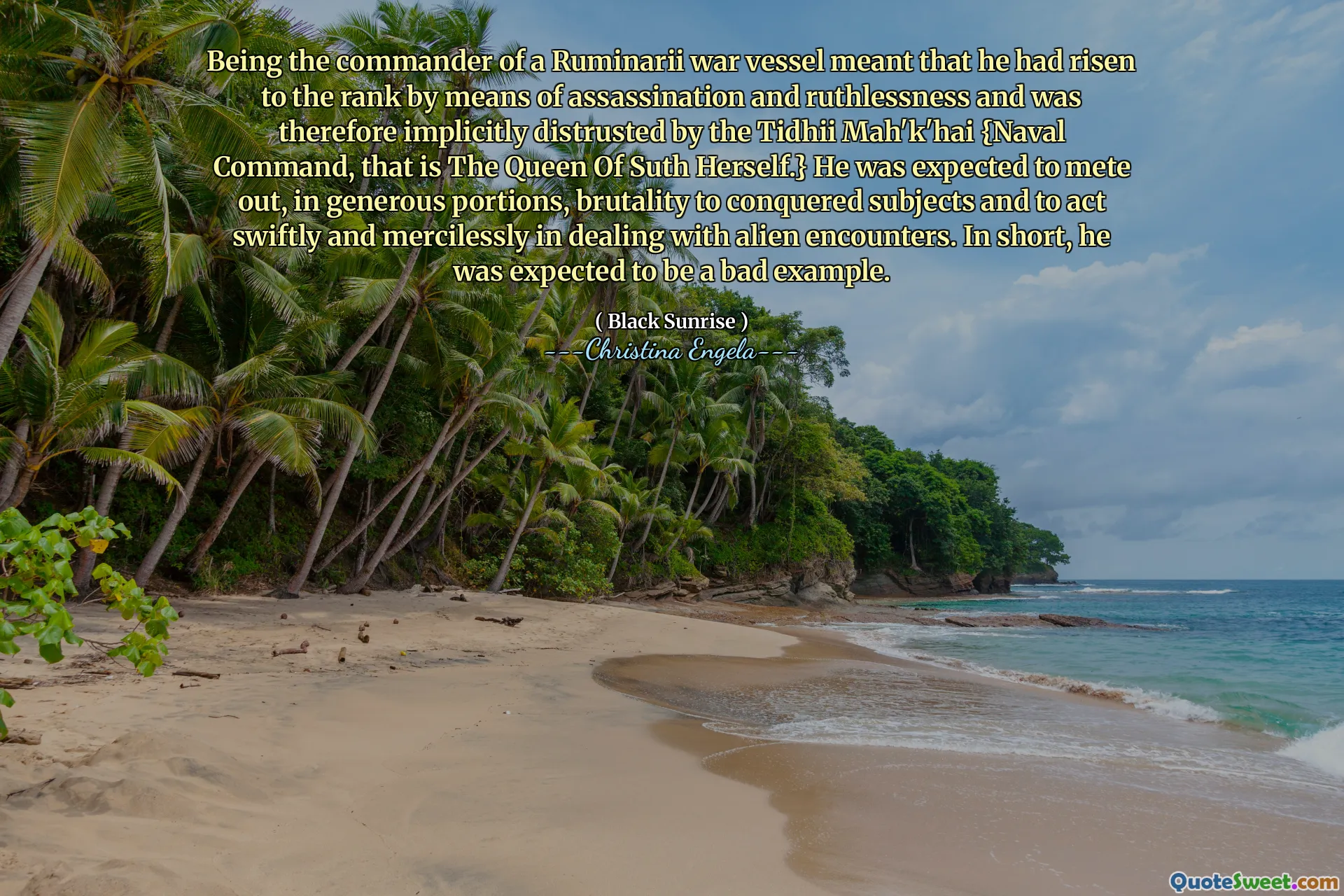
Being the commander of a Ruminarii war vessel meant that he had risen to the rank by means of assassination and ruthlessness and was therefore implicitly distrusted by the Tidhii Mah'k'hai {Naval Command, that is The Queen Of Suth Herself.} He was expected to mete out, in generous portions, brutality to conquered subjects and to act swiftly and mercilessly in dealing with alien encounters. In short, he was expected to be a bad example.
This quote presents a dark and bleak portrayal of leadership within a military and authoritarian context. The ascent to power through assassination and ruthlessness highlights a system where morality is sidelined in favor of survival and dominance. What is notable here is the paradox of trust and expectation: despite the commander's questionable methods and implicit distrust from higher authority, he is both feared and entrusted to enforce brutality, acting as a deterrent and a symbol of absolute authority. It speaks volumes about the nature of power under such regimes, where being a "bad example" is not only tolerated but desired as a method of control. This intertwining of fear and leadership raises questions about the cost of such governance — the psychological toll it takes on those in charge and the oppressed alike — and whether such a system is sustainable or destined to breed only more violence. Additionally, the mention of alien encounters broadens the scope of the narrative, hinting at external threats that demand swift and ruthless responses, further complicating the ethics of military command within an interstellar or fantasy setting. The brutal expectations imposed reveal a systemic embrace of cruelty, perhaps intended as a commentary on real-world wartime leaderships or dictatorships where harshness is both tool and language of rule. Ultimately, the quote lays bare the mechanisms by which power is both held and exercised in merciless worlds, forcing the reader to confront uncomfortable truths about leadership, trust, and the human cost of political and military ambition.






